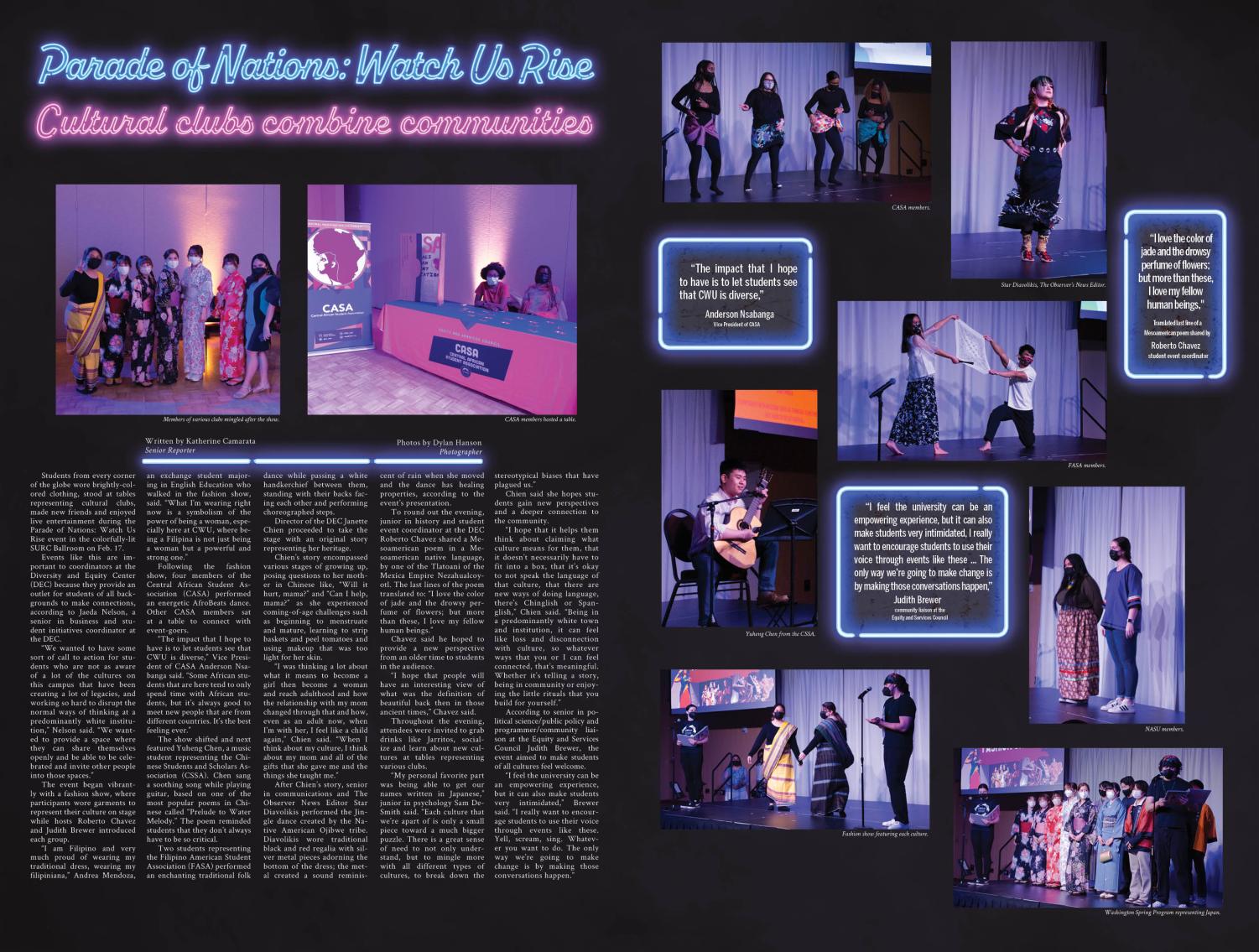Parade of Nations: Watch Us Rise
Cultural clubs combine communities
February 23, 2022
Students from every corner of the globe wore brightly-colored clothing, stood at tables representing cultural clubs, made new friends and enjoyed live entertainment during the Parade of Nations: Watch Us Rise event in the colorfully-lit SURC Ballroom on Feb. 17.
Events like this are important to coordinators at the Diversity and Equity Center (DEC) because they provide an outlet for students of all backgrounds to make connections, according to Jaeda Nelson, a senior in business and student initiatives coordinator at the DEC.
“We wanted to have some sort of call to action for students who are not as aware of a lot of the cultures on this campus that have been creating a lot of legacies, and working so hard to disrupt the normal ways of thinking at a predominantly white institution,” Nelson said. “We wanted to provide a space where they can share themselves openly and be able to be celebrated and invite other people into those spaces.”
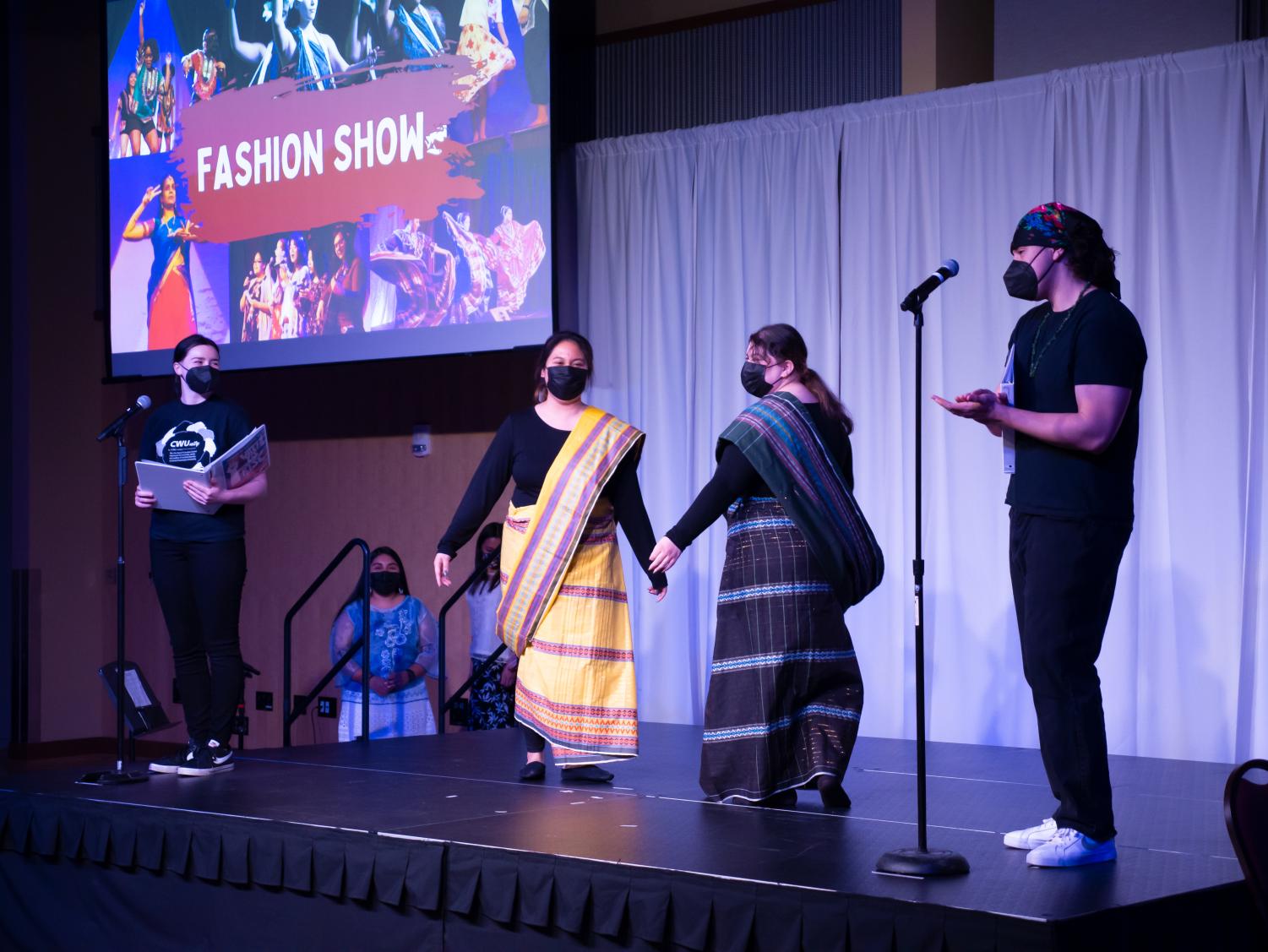
The event began vibrantly with a fashion show, where participants wore garments to represent their culture on stage while hosts Roberto Chavez and Judith Brewer introduced each group.
“I am Filipino and very much proud of wearing my traditional dress, wearing my filipiniana,” Andrea Mendoza, an exchange student majoring in English Education who walked in the fashion show, said. “What I’m wearing right now is a symbolism of the power of being a woman, especially here at CWU, where being a Filipina is not just being a woman but a powerful and strong one.”
Following the fashion show, four members of the Central African Student Association (CASA) performed an energetic AfroBeats dance. Other CASA members sat at a table to connect with event-goers.
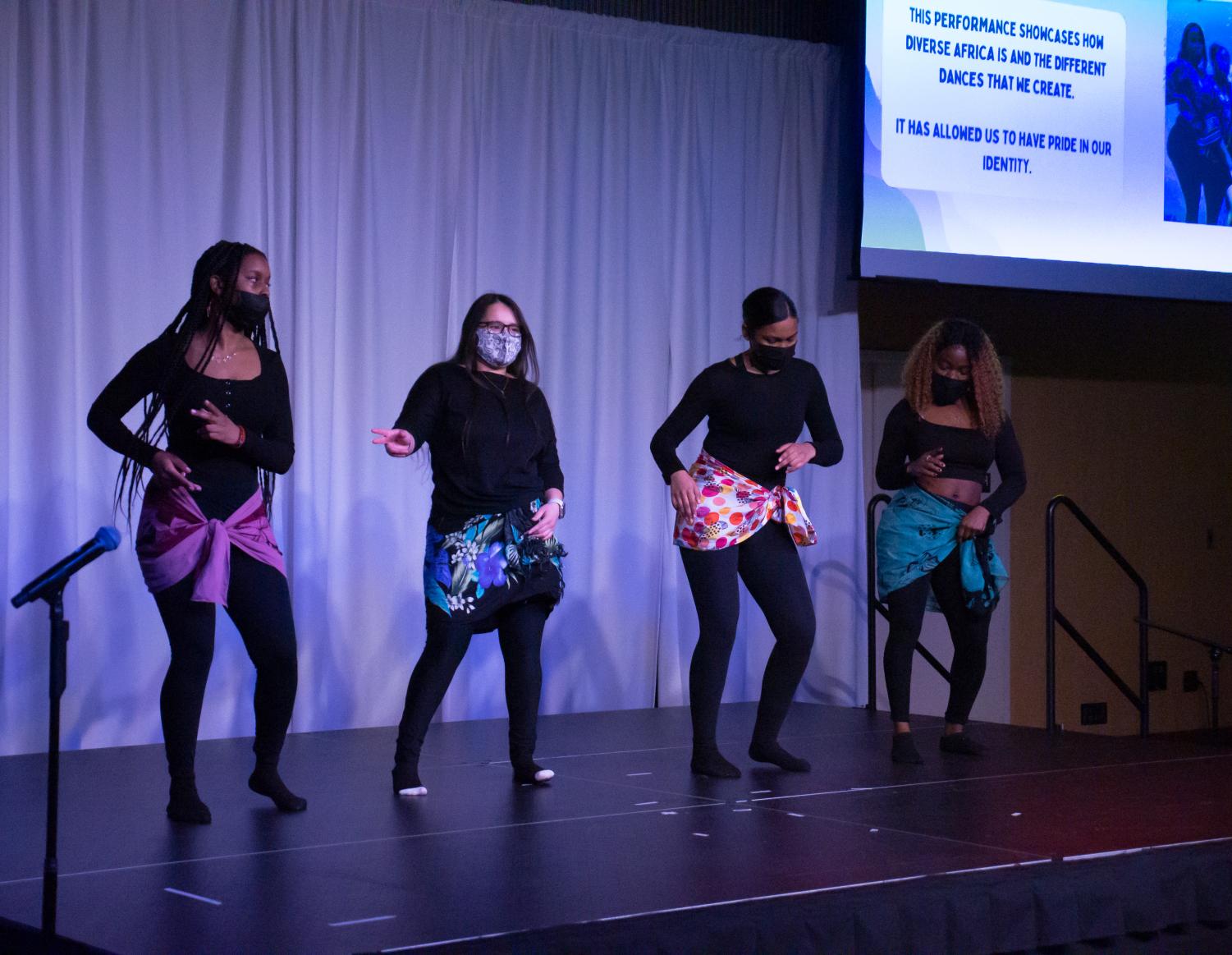
“The impact that I hope to have is to let students see that CWU is diverse,” Vice President of CASA Anderson Nsabanga said. “Some African students that are here tend to only spend time with African students, but it’s always good to meet new people that are from different countries. It’s the best feeling ever.”
The show shifted and next featured Yuheng Chen, a music student representing the Chinese Students and Scholars Association (CSSA). Chen sang a soothing song while playing guitar, based on one of the most popular poems in Chinese called “Prelude to Water Melody.” The poem reminded students that they don’t always have to be so critical.
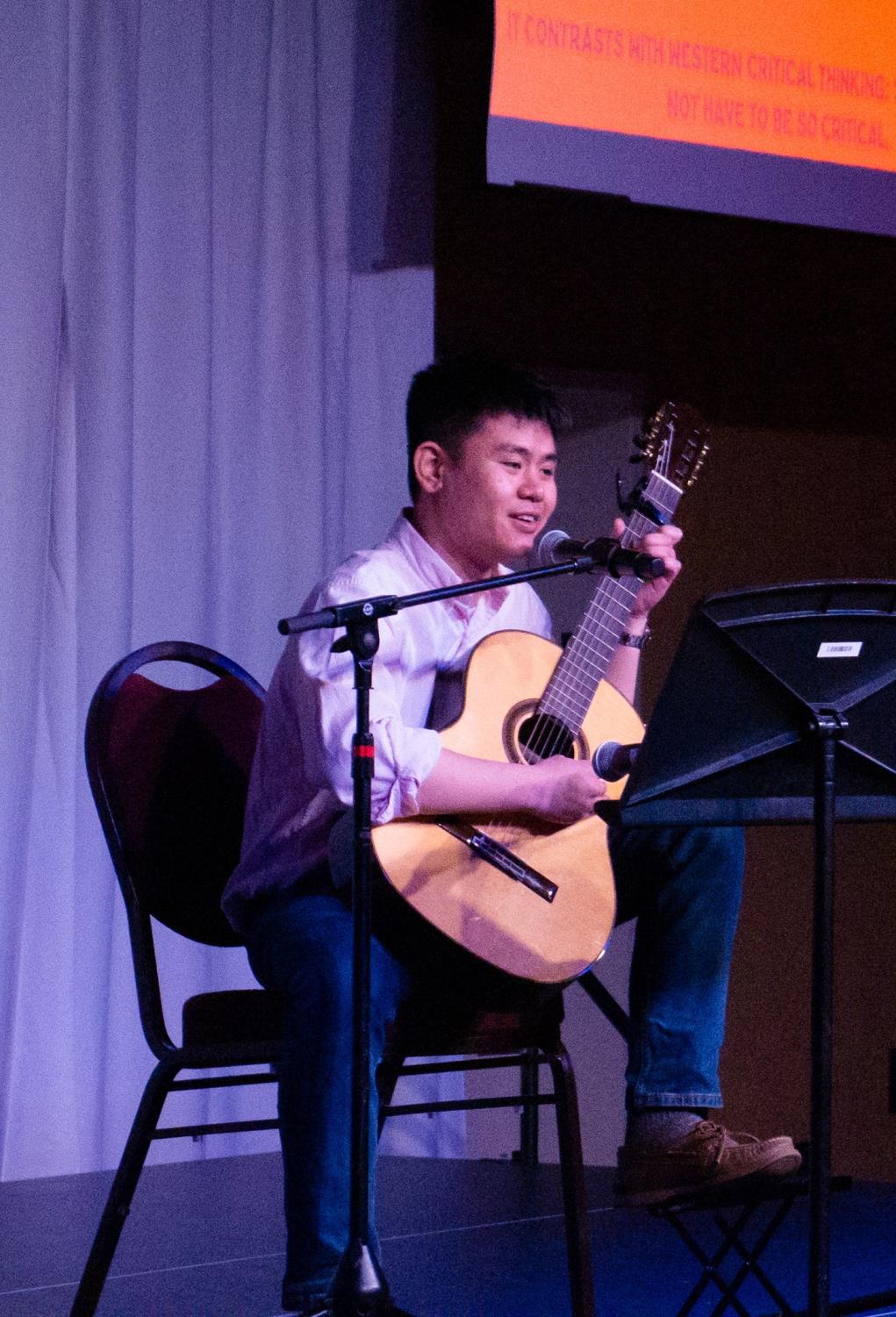
Two students representing the Filipino American Student Association (FASA) performed an enchanting traditional folk dance while passing a white handkerchief between them, standing with their backs facing each other and performing choreographed steps.
Director of the DEC Janette Chien proceeded to take the stage with an original story representing her heritage.
Chien’s story encompassed various stages of growing up, posing questions to her mother in Chinese like, “Will it hurt, mama?” and “Can I help, mama?” as she experienced coming-of-age challenges such as beginning to menstruate and mature, learning to strip baskets and peel tomatoes and using makeup that was too light for her skin.
“I was thinking a lot about what it means to become a girl then become a woman and reach adulthood and how the relationship with my mom changed through that and how, even as an adult now, when I’m with her, I feel like a child again,” Chien said. “When I think about my culture, I think about my mom and all of the gifts that she gave me and the things she taught me.”
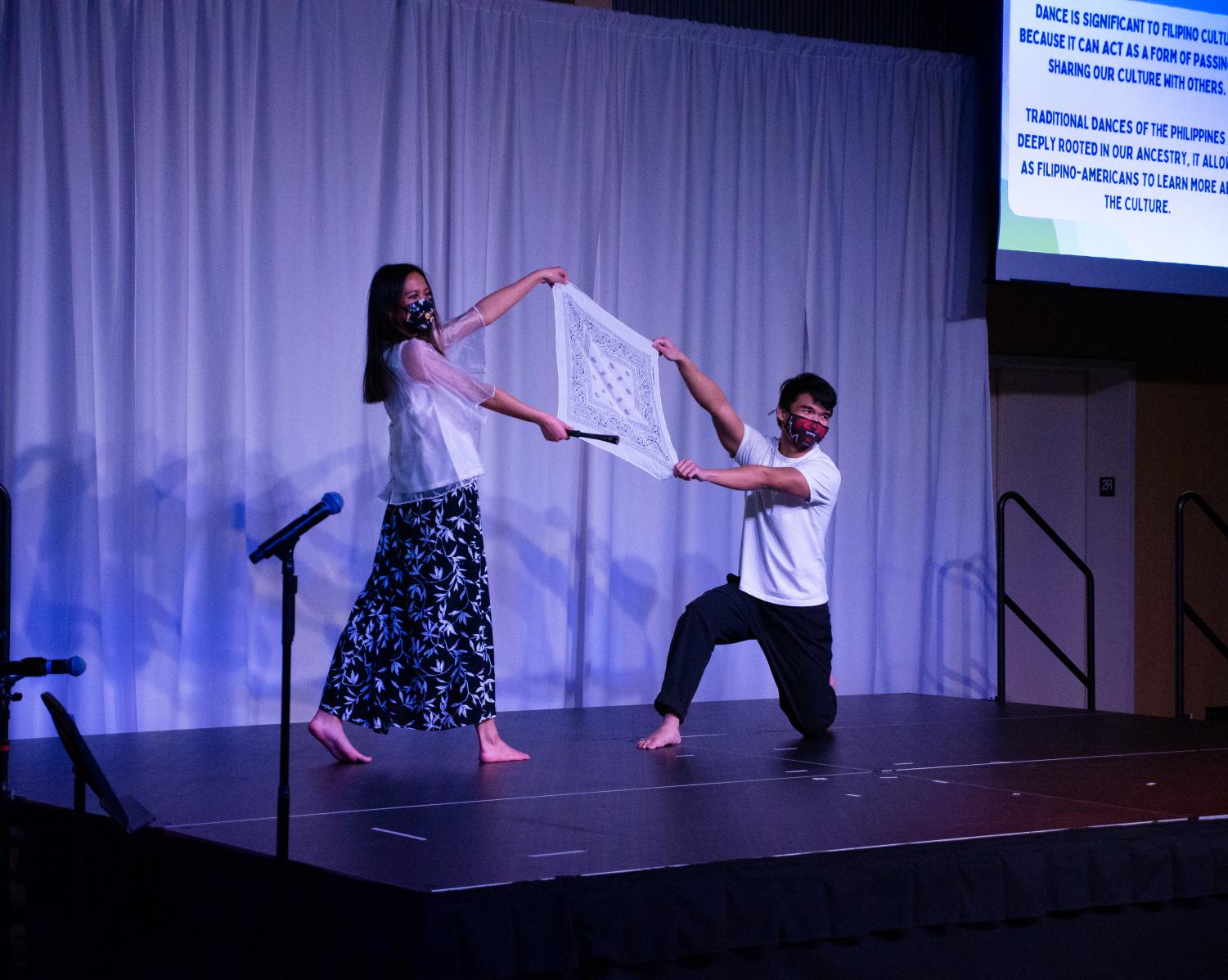
After Chien’s story, senior in communications and Observer News Editor Star Diavolikis performed the Jingle dance created by the Native American Ojibwe tribe. Diavolikis wore traditional black and red regalia with silver metal pieces adorning the bottom of the dress; the metal created a sound reminiscent of rain when she moved and the dance has healing properties, according to the event’s presentation.
To round out the evening, junior in history and student event coordinator at the DEC Roberto Chavez shared a mesoamerican poem in a mesoamerican native language, by one of the Tlatoani of the Mexica Empire Nezahualcoyotl. The last lines of the poem translated to: “I love the color of jade and the drowsy perfume of flowers; but more than these, I love my fellow human beings.”
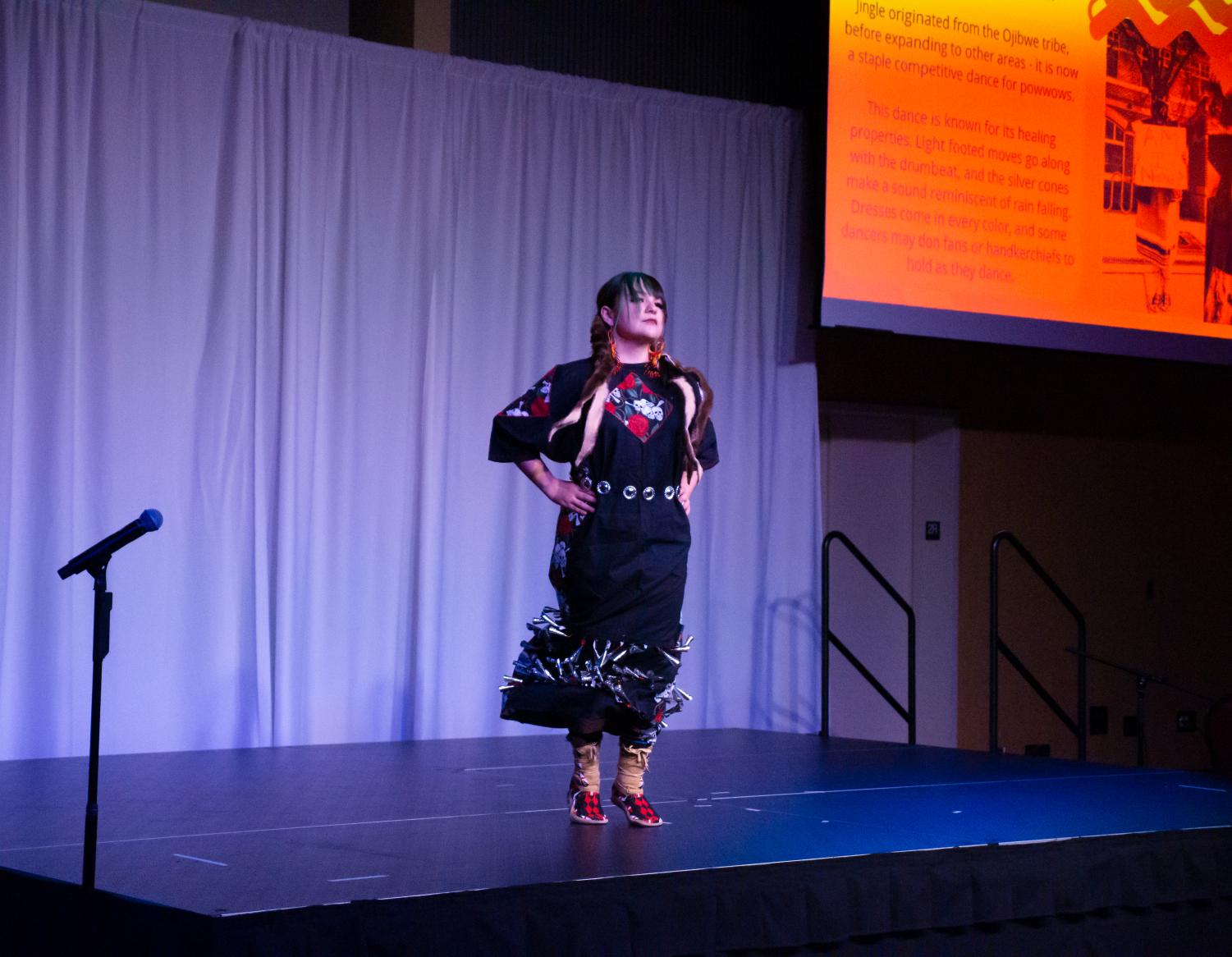
Chavez said he hoped to provide a new perspective from an older time to students in the audience.
“I hope that people will have an interesting view of what was the definition of beautiful back then in those ancient times,” Chavez said.
Throughout the evening, attendees were invited to grab drinks like Jarritos, socialize and learn about new cultures at tables representing various clubs.
“My personal favorite part was being able to get our names written in Japanese,” junior in psychology Sam DeSmith said. “Each culture that we’re apart of is only a small piece toward a much bigger puzzle. There is a great sense of need to not only understand, but to mingle more with all different types of cultures, to break down the stereotypical biases that have plagued us.”
Chien said she hopes students gain new perspectives and a deeper connection to the community.
“I hope that it helps them think about claiming what culture means for them, that it doesn’t necessarily have to fit into a box, that it’s okay to not speak the language of that culture, that there are new ways of doing language, there’s Chinglish or Spanglish,” Chien said. “Being in a predominantly white town and institution, it can feel like loss and disconnection with culture, so whatever ways that you or I can feel connected, that’s meaningful. Whether it’s telling a story, being in community or enjoying the little rituals that you build for yourself.”
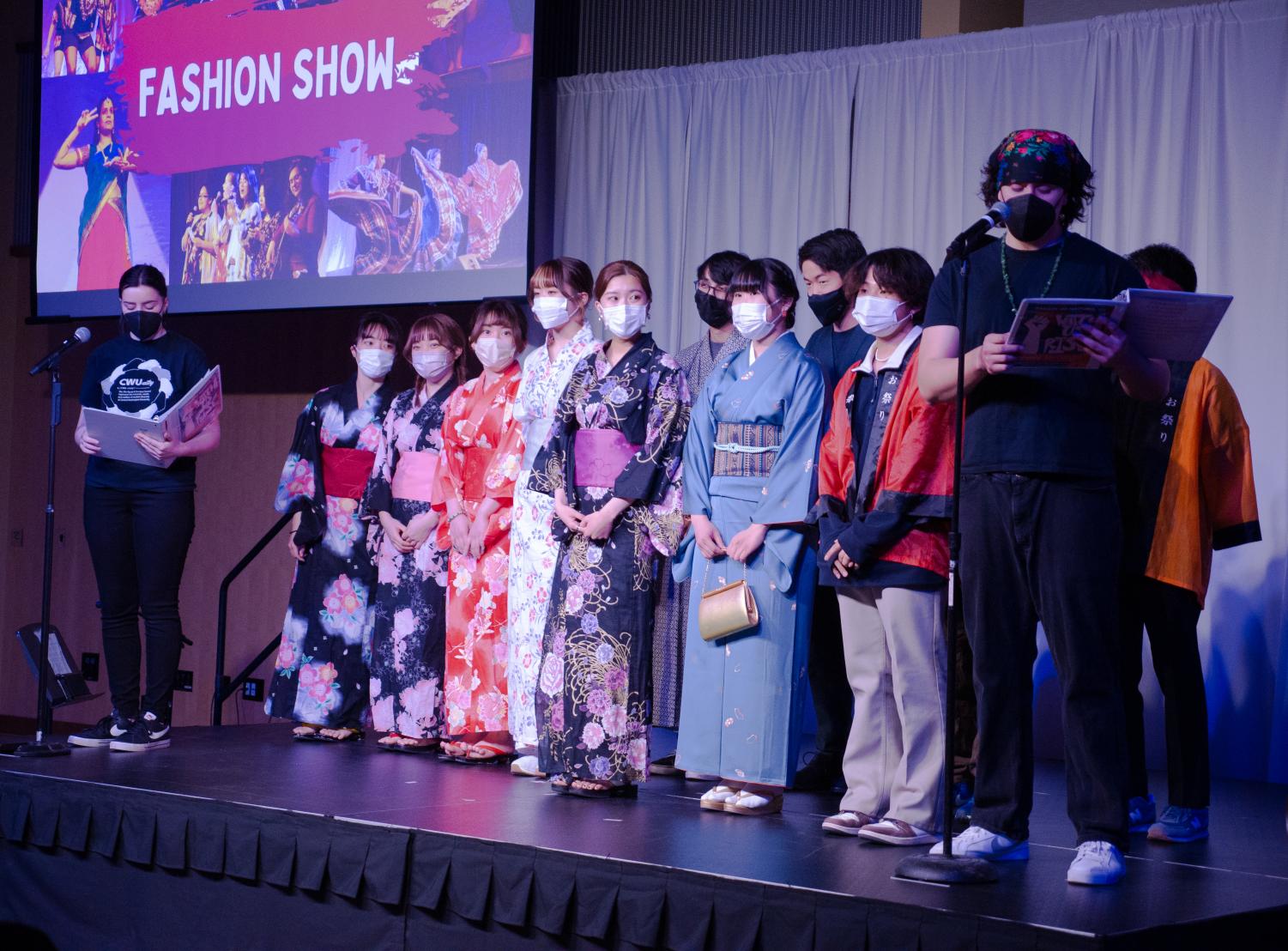
According to senior in political science/public policy and programmer/community liaison at the Equity and Services Council Judith Brewer, the event aimed to make students of all cultures feel welcome.
“I feel the university can be an empowering experience, but it can also make students very intimidated,” Brewer said. “I really want to encourage students to use their voice through events like these. Yell, scream, sing. Whatever you want to do. The only way we’re going to make change is by making those conversations happen.”


